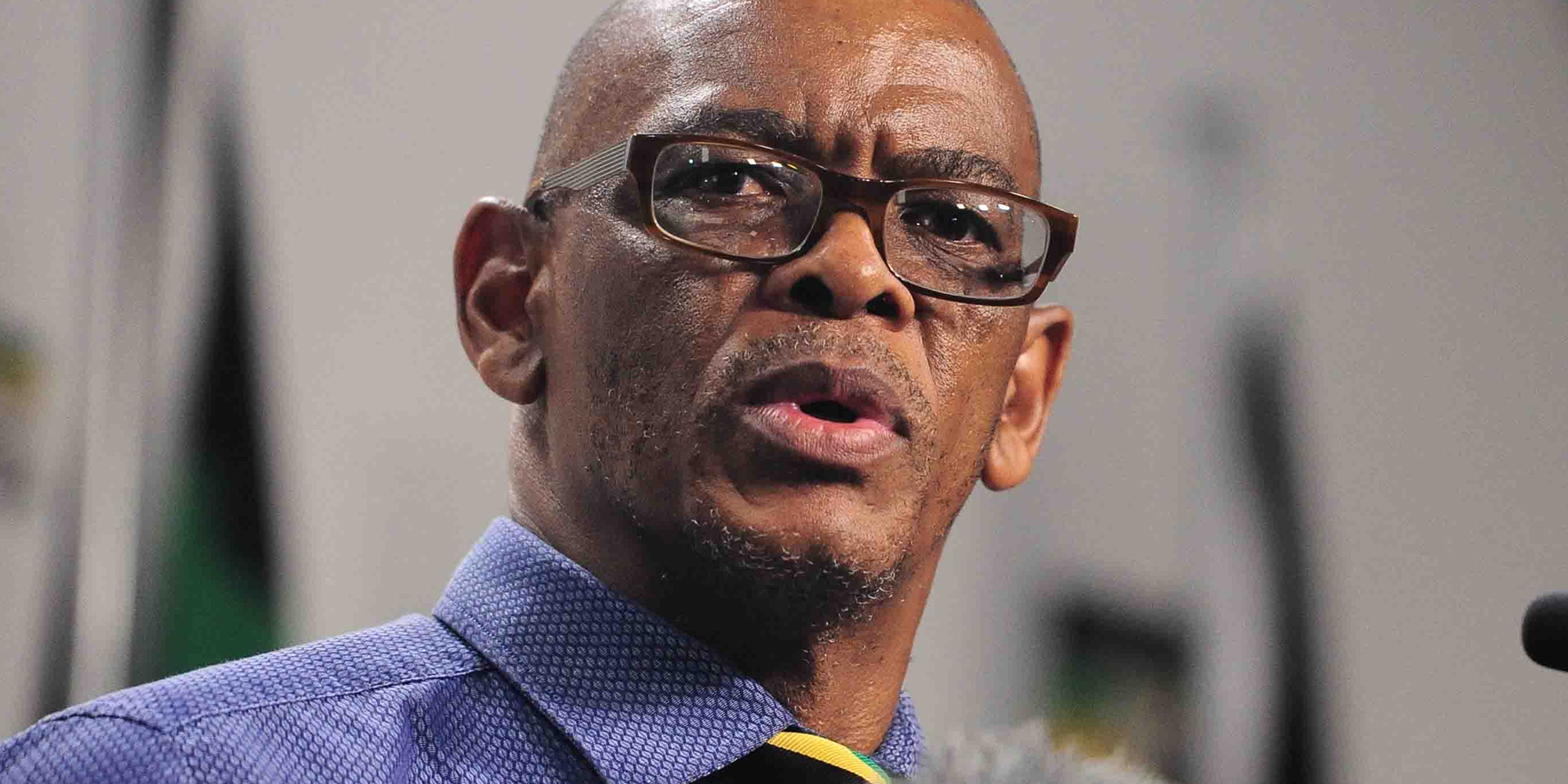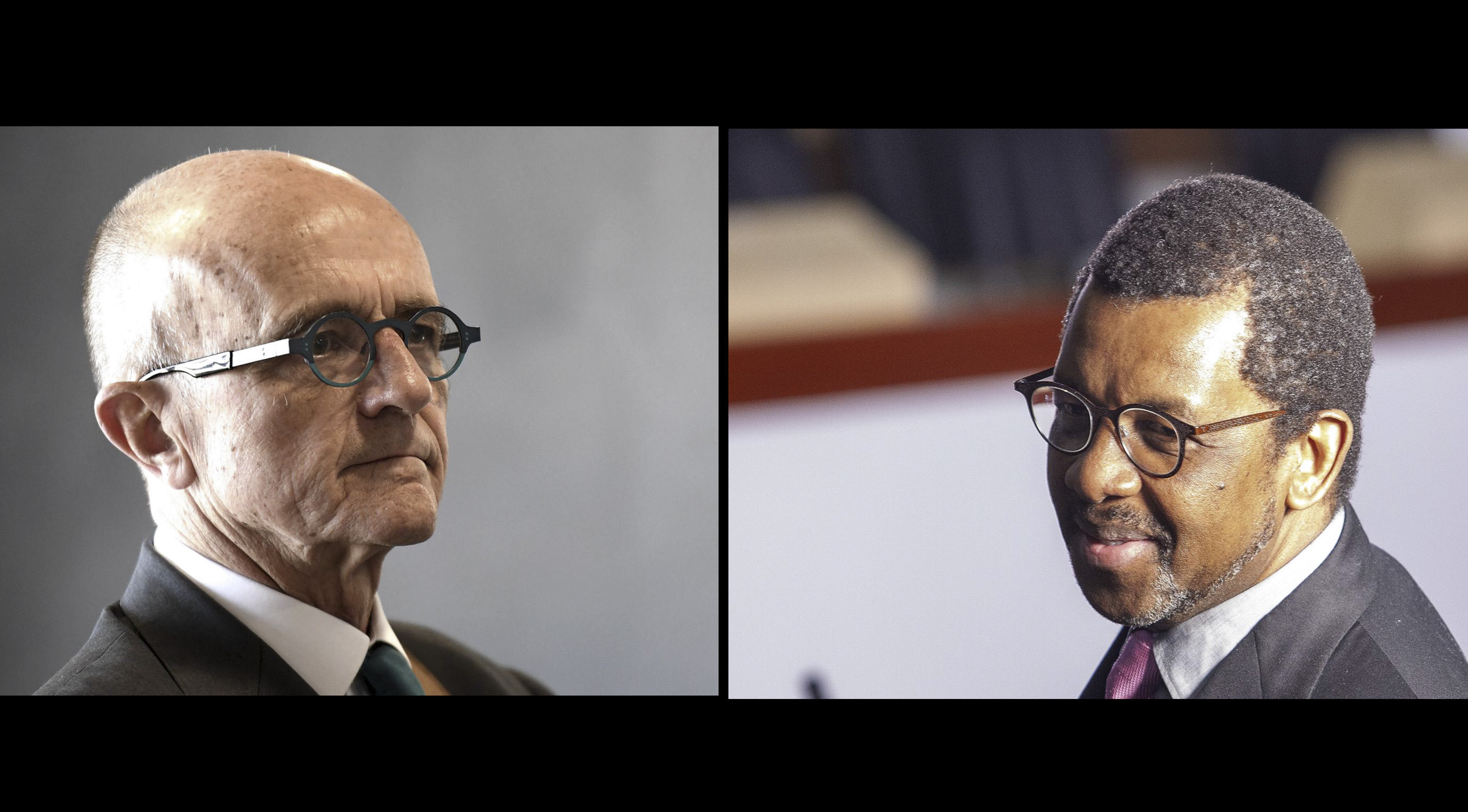The appointments of Wim Trengove and Dali Mpofu as senior counsel to argue the cases for and against ANC secretary-general Ace Magashule’s suspension reveal the high stakes at play.
The two are among the country’s most prominent lawyers, and it is likely that President Cyril Ramaphosa is retaining Trengove on his own account. The silk often acts for the President in the most complex legal cases. The party’s packed in a full legal team of four senior counsel and a junior who Ledwaba Mazwai Attorneys will instruct. In addition to Trengove, the ANC will be represented by Ngwako Maenetje, Fana Nalane and Buhle Lekokotla.
News reports reveal the ANC’s finances are in dire straits and that it is unable to make payroll on time most months. The Sunday Times has also reported that it has not made its SARS tax payments, nor has it paid over staff members pension contributions.
On Friday, May 14, Magashule’s legal team announced its intention to have his suspension by the ANC overturned in an urgent application in the Gauteng high court on 1 June. That immediately stopped the ANC from taking disciplinary action against him for not meeting its 48-hour deadline for him to apologise to the party’s membership for trying to suspend Ramaphosa on 3 May.
Instead, the entire imbroglio now goes to the courts, where the appointments reveal that the case is likely to be anything except clear-cut. It will be a legal slug-fest where Magashule’s papers indicate he will draw upon his Constitutional rights to belong to a political party, his right to fair administrative action and his right to be presumed innocent. The major part of his action will be to argue that the ANC violated its own Constitution in how it amended the step-aside rule between 2017 (when the ANC passed it) and 2021 (when the ANC finally implemented it). And Magashule will also argue that his deputy, Jessie Duarte, did not have the requisite authority to suspend him at the time she did. She had not yet been formally appointed to act as secretary-general. He uses evidence that Duarte still had to get his signature to allow regional party conferences to go ahead.
Inside the ANC, there is unhappiness at how the step-aside rule has ended up in court. The rule applies to the party’s conference resolution, which said that all cadres reported being involved in corruption cases had to step aside from their party or legislative roles. And party leaders are angry that factional battles have now spilt out so viciously that they end up in open court. The ANC likes to keep its fights in-house, but it is increasingly unable to do so.
 Suspended ANC Secretary-General Ace Magashule. (Photo: Gallo Images / Sowetan / Thulani Mbele)
Suspended ANC Secretary-General Ace Magashule. (Photo: Gallo Images / Sowetan / Thulani Mbele)
Magashule’s papers reveal that former president Thabo Mbeki at the ANC NEC meeting of 8 to 10 May echoed a question about whether or not the ANC still exists?
“Do we still have an organisation called the ANC?” the papers reveal Mbeki asked as he supported calls for ANC leaders to go on a retreat to answer the question. Mbeki was the only one of four veteran ANC leaders, whom Magashule received counselling from in the past month, who said he should step down. Mbeki did not make Mbeki’s statement to support the suspended secretary-general but to raise a growing view that questions the coherent existence of the ANC.
The ANC’s view
Early legal opinion by the ANC showed the party could rely on the 2012 Constitutional Court judgment of Ramakatsa and others vs Magashule and others. It found that “…the (SA) Constitution does not spell out how members of a political party should exercise the right to participate in the activities of their party. For a good reason, this is left to political parties to regulate”. The contract between the party and its members is unique, the ANC says.
In that case, members had gone to court to oppose how Magashule had run the ANC's Free State operations to manipulate branch election outcomes.
Ironically, Magashule is relying on the same judgment against him to now bolster his court application. The judgment also found that “It bears repeating that political parties may not adopt constitutions which are inconsistent with (the Constitution). If they do, their constitution may be susceptible to a challenge of constitutional invalidity.”
Magashule will ask the court to declare the ANC step-aside rule and the suspension rule 25.7 of the ANC Constitution to be unlawful, unconstitutional, invalid and null and void (thus lifting his suspension).
The ANC, which has not yet formally drawn up its legal arguments, is likely to argue that as a voluntary organisation, it can set its own rules as long as these are in sync with the Constitution. It will argue that it treated Magashule with procedural fairness. And it is likely to use a 2014 Eastern Cape judgment involving the expulsion of 13 councillors by the ANC. In Madingane and others vs Mbashe Municipality, the Eastern Cape Division of the high court said that the ANC Constitution was consistent with the country’s Constitution.
The early ANC opinion raised a view of Pierre de Vos. “The South African Constitution does not guarantee for anyone the right to be presumed innocent by ordinary citizens (and one may add voluntary associations like the ANC) until he or she is proven guilty in a court of law. It is not a right at all and is generally invoked by politicians and members of the public who wish to avoid any discussion of alleged wrongdoing either by themselves or their friends and allies.”
Instead, “…the Constitution guarantees for everyone the right to a free trial, which includes the right to be presumed innocent at that trial”.
But is it urgent?
Magashule’s lawyers will ask the court to hear his case expeditiously on an urgent basis. This may not find willing judicial ears as it is an internal party matter.
Still, Magashule argues in his papers that: “…upon reflection and bearing in mind the position of the ANC as the custodian of the state and the ruling party for 27 years since the advent of democracy in South Africa, it will be clearer that the attendant crisis in the ANC spells a crisis for all South Africans, whether or not they support or vote for the ANC.” The courts have recently thrown out requests for urgency on more compelling grounds.
But 1 June is still a date to mark as Magashule takes his power battle to the courts. DM




 Suspended ANC Secretary-General Ace Magashule. (Photo: Gallo Images / Sowetan / Thulani Mbele)
Suspended ANC Secretary-General Ace Magashule. (Photo: Gallo Images / Sowetan / Thulani Mbele) 